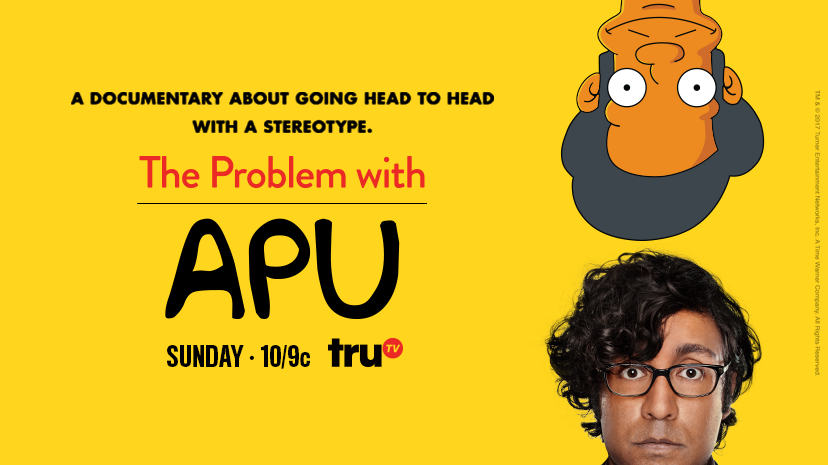Hari Kondabolu wants you to realize why The Simpsons character Apu is a problem.
His documentary, The Problem with Apu, aims to show Simpsons fans why their favorite Qwik-E-Mart store owner is much more than just a funny character. For many, Apu is a figure embedded with offensive racial stereotypes about Indian-Americans and Indian immigrants, compounded by the fact that the voice of Apu, Hank Azaria, is putting on a stereotypical Indian accent.
Vulture’s Malika Rao (who also appeared in the documentary) interviewed Kondabolu about the film, his opinions on Apu, the struggles he had with making and editing the film, and what the conversation about Apu means to the bigger issues of representation for Indian-Americans and POC in general.
On figuring out how to to explain racism to the uninformed:
“It was fun to make a movie and to interview so many people, but the actual heart of the issue, it was a 101 course. I honestly wanted to call it Seriously? I need to explain this? Because we all know this. It’s obvious. But I had to educate people. There’s a part of the film where I had to be reminded, this is going to mainstream America. This isn’t a film that’s in festivals. I need to explain basic ideas. I really need to explain minstrelsy? I really do? And I’m like, yeah, I do. This stuff used to be called “inaccessible” though. We’re at least in the era where it’s now mind-blowing.”
How Apu represents America’s deep-seated racism:
“The issue isn’t so much the character. I’m a 35-year-old man. It’s not an offensive thing, it’s a little insulting, especially when I was a kid. To me, it’s like, how did that happen, how does that still happen, how do we keep doing it? It’s not like it’s over. We still think about representation, we still think about erasure or one-dimensional representation. This is a classic example, but it’s one example. Apu is grandfathered in. It’s like a fossil in nectar, you know what I mean? It’s a great example for us to see because it’s both then and now. Times have changed, but ultimately for me it wasn’t just about Apu. It’s really about where we are as a culture and the fact that racism isn’t a singular thing. It’s a virus. It mutates, and every era, it changes.”
The one part Kondabolu wished he put in the documentary:
“There’s this one anecdote we didn’t put in that kills me. I did some research, and Peter Sellers and Satyajit Ray knew each other [Editor’s note: Peter Sellers starred in The Party, in a role Hank Azaria has compared to Apu; Ray created The Apu Trilogy, the famous Bengali series that the Simpsons’ Apu got his name from.] Ray wanted Sellers to be in his first attempt for a film, called Alien. They hit it off. Then Ray saw Sellers in The Party and was horrified. I just met this man. This is what he thinks of me? And the voice he uses. Peter Sellers has a monkey pet in the movie. The monkey’s name is Apu, and that’s not a coincidence, especially during [the time of the release of Ray’s Apu Trilogy]. I hear that story and I think about Apu, the cartoon character. You take [Ray’s] main character and give him this voice you know he would hate. The fact that [Apu the monkey] wasn’t squashed — this is what happens when you don’t squash it. It doesn’t look the same way, but it still survived.”
On how racism and representation affects all people of color:
“There’s a history of how people of color are used and how their bodies and images are monetized. Any South Asian in this country has faced it considerably easier [than black people]. When we talk about big moments, we talk about 9/11. You’re being held by law enforcement, seen as a threat. Black people deal with that every day. So it’s from this large legacy, but it’s not the same.”
Make sure to read the full interview at Vulture.com. The Problem with Apu is now streaming on TruTV and Amazon TV, Amazon Fire, iTunes, Roku and other streaming services.
